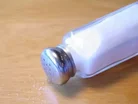Drastic action needed to reduce global salt intake

As part of Healthcare Global's look back at 2011 we revisited this story from August...
Scientists in Britain are urging the UN to take drastic action to reduce the amount of salt people consume in their diets.
They are arguing that 8.5 million lives could be saved around the world in the next 10 years if our salt intake is reduced by 15 percent.
The researchers cited the US as an example, where they claim hundreds of thousands of lives could be saved and healthcare costs would be reduced by $24 billion annually.
Decreasing salt intake is one of the cheapest ways to improve global health, second only to cutting tobacco consumption, the researchers say, as there is a “consistent, direct relation between salt intake and blood pressure.”
The World Health Organisation (WHO) has a global goal to reduce salt intake to 5g per person per day, although the recommended consumption in many countries is much higher than this guideline.
There have also been calls for monitoring in the food industry itself if voluntary methods to cut salt intakes fail.
“The reformulation of food in their hands could deliver a massive impact to public health in the same way that at the moment it is contributing to a huge burden of disease,” said Professor Francisco Cappucio one of the researchers. .
It is thought that reduced intake would have a global impact as 70 percent of deaths in the developing world are the results of heart attacks and strokes.
A report on the subject has been published in the British Medical Journal.
Our magazine is now available on the iPad. Click here to download it.
- Top 10 largest hospitals in the worldHospitals
- Learn how to avoid potential health risks with importsProcurement & Supply Chain
- McKessons VP comments on how-to build an effective healthcare management teamProcurement & Supply Chain
- Dell's CEO contributes seven tips on how to maximize healthcare eventsProcurement & Supply Chain



